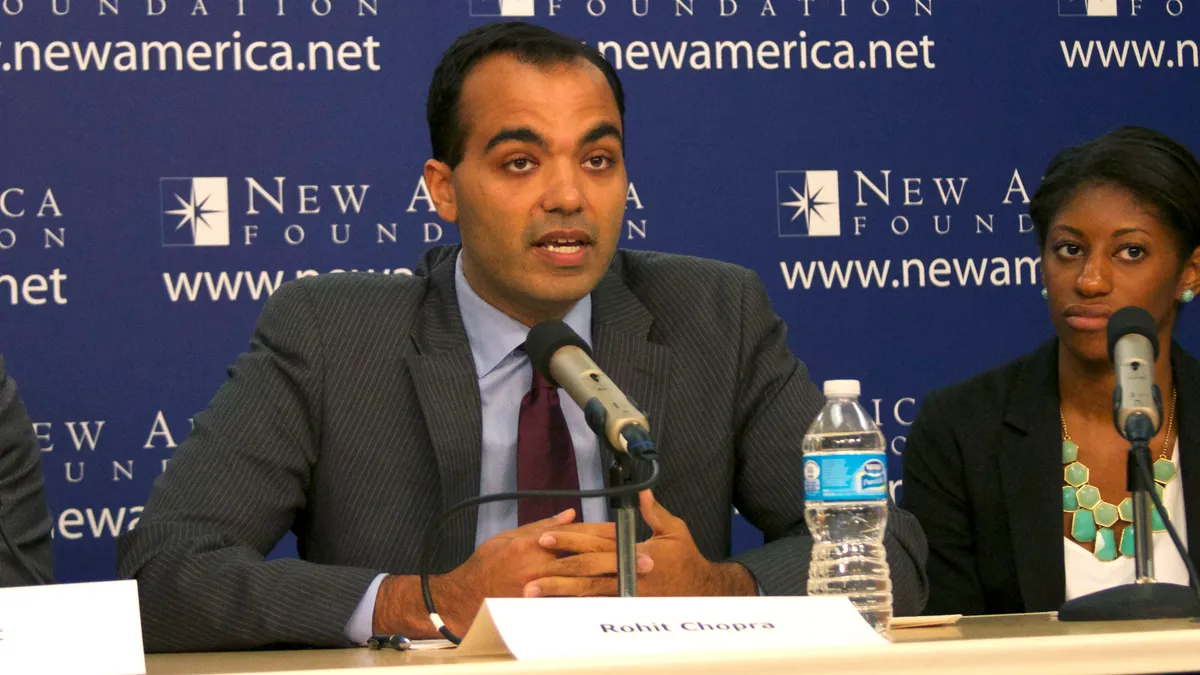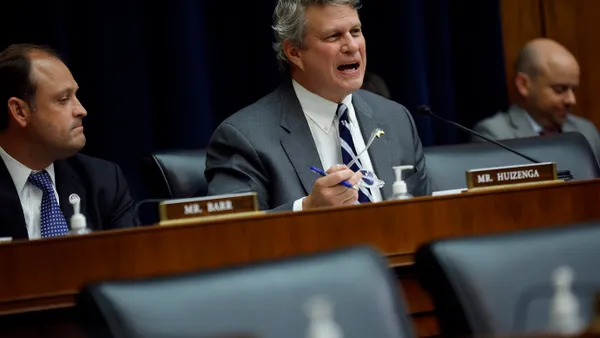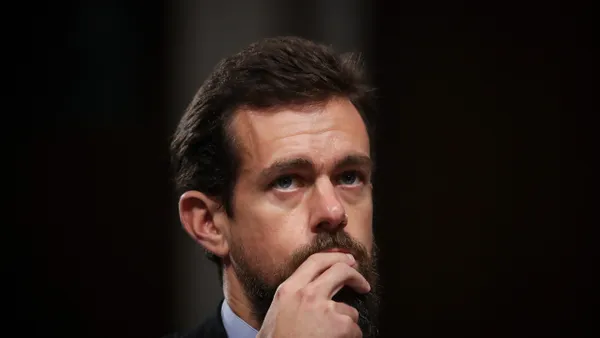The Consumer Financial Protection Bureau is sharpening its focus on exorbitant credit card late fees, issuing a new proposal Wednesday to review rules governing the charges.
“The Consumer Financial Protection Bureau (CFPB) is taking the first step toward addressing credit card company penalty policies costing consumers $12 billion each year, starting by looking at excessive late fees,” the agency said in a statement issued Wednesday.
The federal agency is reviewing rules that may not be satisfying a 2009 law, the Credit Card Accountability Responsibility and Disclosure Act, that was supposed to ban excessive card penalties. In implementing that law, the Federal Reserve Board of Governors in 2010 carved out some exceptions that have protected credit card issuers in setting late fees, the CFPB said.
The credit card law required that late fees be “reasonable and proportional,” but the regulation implementing the law also set an “immunity provision” for the bank card issuers to set specific fee amounts. Now, the CFPB, which is tasked with adjusting those permitted amounts each year for inflation, suggests that immunity clause is getting out of hand.
As part of its rulemaking proposal, the CFPB said in the statement that it asked for information “on the Federal Reserve Board of Governors’ 2010 immunity provision for excessive late fees that allows credit card companies to escape enforcement scrutiny.”
Late fee limits today are set at $30 for the first late fee, and $41 for a subsequent fee in the next six billing cycles, the agency said.
The CFPB’s statement this week also noted that about 175 million Americans have at least one credit card and that late fee revenue accrued by bank card issuers flows disproportionately from consumers in low-income neighborhoods.
In March, the agency issued a report saying credit card issuers charged $12 billion in late fees in 2020, declining from $14 billion in 2019, but noted that current late fee volume is climbing back to 2019 levels. The $12 billion in late fees charged in 2020 amounted to about 10% of the cost of credit cards for consumers, the agency said.
CFPB Director Rohit Chopra, who has taken an aggressive stance on a number of consumer issues related to payments, expressed concern about the trend at that time, especially in light of climbing U.S. inflation. He reiterated that sentiment Wednesday.
“Credit card late fees are big revenue generators for card issuers,” Chopra said in the June 22 CFPB statement. “We want to know how the card issuers determine these fees and whether existing rules are undermining the reforms enacted by Congress over a decade ago. This effort is particularly timely since current rules might give companies the incentive to impose big hikes based on inflation.”
JPMorgan Chase, American Express, Citicorp, Capital One and Bank of America were the biggest issuers of general purpose credit cards last year, according to a February ranking by industry research firm The Nilson Report based on 2021 purchase volumes.
JPMorgan Chase didn’t immediately respond to a request for comment, and Capital One deferred to the banking associations that represent issuers.
The Consumer Bankers Association responded with a public statement, saying that the bureau’s latest move ignores that the banks’ have been abiding by existing laws, seeking to reduce default risks for consumers and waiving some late fees during the COVID-19 pandemic.
The CFPB “announcement is another reminder the Bureau appears more interested in advancing a particular agenda than developing fact-based policies that improve the lives of hardworking families,” the CBA said in a statement issued Wednesday. “Missing from this announcement is the fact that banks – more than any other industry – have taken concrete steps to make their products more affordable and accessible for millions of Americans.”
The American Bankers Association also weighed in. “Consistent with Director Chopra’s misguided public relations campaign against so-called ‘junk fees,’ today’s CFPB action attempts to sensationalize a standard, highly regulated fee, creating the false impression that credit card issuers are pushing the bounds of the law,” ABA Spokesperson Sarah Grano said in a statement. “The truth is that late fees have been capped by federal regulation since they were put in place by the Obama administration in 2010, and those caps have been updated annually by the CFPB including last fall.”
The card companies suggested it’s none of their business what terms the banks set when they issue the cards that bear the logos of their card companies.
In an emailed response, Visa Spokesman Andy Gerlt said: “Given we do not issue credit cards or service accounts with consumers, this rule is not applicable to Visa.’
Similarly, Mastercard Spokesman Seth Eisen said: “This is a question for issuers. We do not have any involvement with cardholder (terms and conditions) or fees.”
The CFPB requested input from the banks that issue credit cards, consumer groups and the public on its proposed rulemaking notice, setting a July 22 deadline for those comments to be filed.











